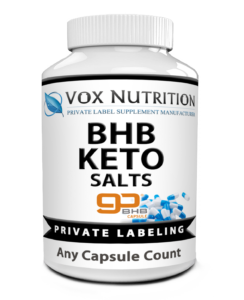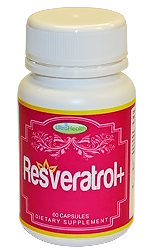
When it comes to fighting heart disease, resveratrol is among the most effective, but not the most popular
It is a compound derived from red wine that is used to slow down the aging process of cells, so that they may function much more efficiently.
Antioxidant compounds can reverse the damage done by free radicals that have invaded our bodies over the years. However, they do not prevent damage that is already done. Resveratrol, like other compounds containing antioxidants, helps our bodies to protect themselves from these damaging agents.
Resveratrol, which is produced naturally by many plants, is actually a very strong, polyphenol, a form of naturally occurring phenol. Antioxidants are found everywhere, but they work best when they come in a very concentrated form. Sources of resveratrol that are commonly eaten include blueberries, mulberries, grapes, raspberries, and several other fruits and vegetables.
In very high doses, resveratrol can also be harmful to your health. It should be avoided as much as possible by most people, unless they have very good reason.
Resveratrol has some good reasons to be taken by us. For instance, resveratrol has been shown to increase the activity of enzymes that break down fat. That is why many athletes and people who have suffered from obesity find that resveratrol can help them lose weight. In a study published by the Journal of Diabetes & Metabolism, resveratrol was shown to increase the activity of a group of proteins, called peroxidase, in human beings.
Other studies have shown that resveratrol may help people suffering from Alzheimer's. A study published in the European Journal of Pharmacology showed that resveratrol might be useful in slowing down the effects of memory loss. Another study has shown that resveratrol may be helpful in preventing the formation of a harmful protein called beta-amyloid plaque, which forms on the brain.

While there are a number of bad things about this compound, there are some good things as well
Some studies even suggest that it might even protect the heart. And the antioxidants that it contains, including both the vitamin and the enzyme substances, could possibly help reduce the risk of stroke and heart attack.
We might all like to eat as much red wine as we can afford, but it is probably best to keep our intake of it to about the amount that is found in about one red wine bottle every day. In the meantime, we can enjoy the other nutrients that we get from resveratrol by taking a multivitamin and vitamin C supplement that contains resveratrol.
But if you do want to try resveratrol for prevention or treatment of heart disease, you have to be sure that you are getting enough of it. Most of us don't get enough of the compound in our diets every day, so taking a multi vitamin supplement will help to make sure that you get the proper amount.
In fact, a study published in the American Heart Journal showed that resveratrol could actually lower the risk of heart disease, particularly those that were caused by clogged arteries. Resveratrol has been used for years in Japanese medicinal procedures and even in some kinds of cosmetic procedures. Some people have said that it helps to treat depression, Alzheimer's, and even to treat certain cancers such as prostate and breast cancer.
Research shows that it may also slow the development of certain types of tumors. The antioxidant also appears to stop the destruction of blood vessels in the brain and may also prevent the occurrence of Alzheimer's.
There are two kinds of resveratrol supplements on the market today, those that are taken orally and those that are taken in the form of a pill. The oral type is generally taken at lunch and dinner and the pill form of resveratrol supplements are taken once a day, just before you eat a meal.
The important thing is to remember that resveratrol is not a magic bullet. There is no way that you can get all of the nutrients that you need from just one pill or capsule.
About the author